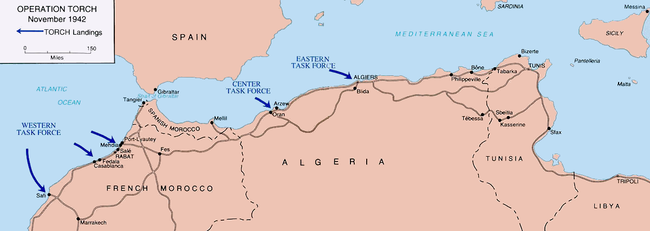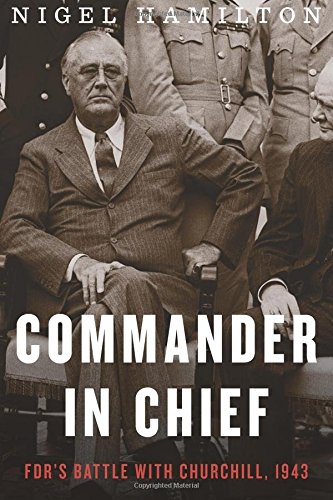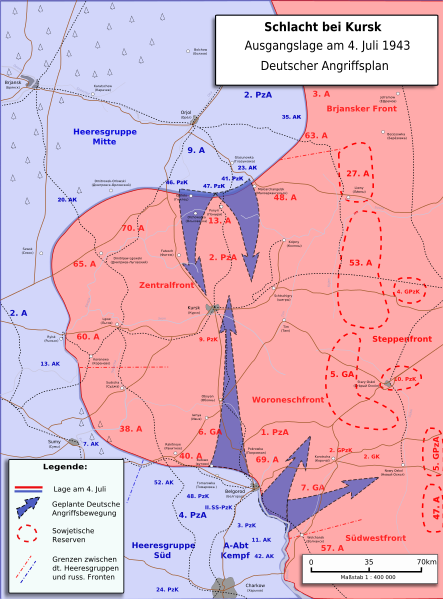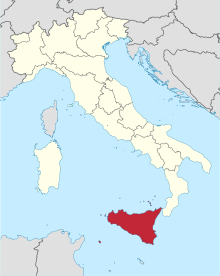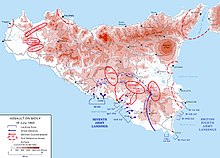Almost all would agree that today’s big conflict is between USA & China. As we see it, China might be the biggest & more multi-dimensional opponent America has ever faced. The post WWII Soviet Union was never an economic opponent. So the USA-USSR conflict was simpler and Europe was clearly on America’s side.
China, on the other side, is the second largest economy in the world & a modern technological power. But China is a localized enemy in Asia just as Imperial Japan was in WWII. Just as Imperial Japan began that war by a sudden & destructive attack on US Navy at Pearl Harbor, an attack that paralyzed the US Navy for six months. That time period allowed that Japan to invade & occupy China, Malaya & the hub of Singapore.
Both America & China know what happened after that – the Battle of Midway that destroyed the Japanese Navy as an offensive force. We have no doubt that the US Navy is well prepared to defend against a similar surprise attack on US bases & US aircraft carriers by China and that China knows that. We assume China has also understood the retaliatory capabilities of the US Navy and will plan for that.
America never fought a global war against USSR. So the only big war we can study is WWII to understand how such a war is conducted and what critical factors determine victory or defeat. That is why we began reading the massive 3-volume biography of President Franklin Delano Roosevelt by Nigel Hamilton.
Frankly, this biography has left us somber and worried about the next big war. It is sobering to see how that enormous World War, despite great military commanders like Eisenhower, Patton, Bradley, Montgomery, Erich von Manstein, Rommel, Zhukov, and imposing political leaders like Churchill & Stalin, was finally determined by the thinking, decisions, practical leadership & determined smarts of two leaders – Hitler & FDR.
The biography clearly demonstrates that, in the end, it is finally the leader-in-charge who determines success or failure. And that leader has to know and act alone. Both Hitler & FDR did. But FDR was smarter, listened more & was completely sure of final victory if the war was waged step-by-step. And he did this AFTER bringing America out of the Great Depression in the 1930s. How he did that is what Nigel Hamilton found out & that is the reason for his 3-volume FDR biography, as he tells us below:
- “From boasting only the world’s seventeenth-most powerful military in 1939, the United States gradually took upon itself the successful leadership of the democratic world under Roosevelt’s command – and became the most powerful nation on earth, bar none. How exactly President Roosevelt directed this transformation, and the operations of his armed forces around the globe – with what aims, with what challenges, with what lessons – is to me of abiding interest in the world we’ve inherited. “
1.Japan or Germany?
As we discussed in our previous article, the battle of Midway destroyed the Japanese Navy as an offensive force. That raised the question whether the US should focus on defeating Japan or redirect the fight to Germany. FDR took that decision & drew up the instructions in his own handwriting for General Marshall & Admiral King for their mission to London on July 16, 1942 (just a month after the victory at Midway):
- “I am opposed to an American all-out effort in the Pacific against Japan with the view to her defeat as quickly as possible, …. It is of the utmost importance that we appreciate that the defeat of Japan does not defeat Germany and that American concentration against Japan this year or in 1943 increases the chance if complete [Nazi] domination of Europe and Africa. ” – page 350 of Vol I – The Mantle of Command“
That decision led to FDR’s decision to launch Operation Torch, the allied landing in French North Africa in November 1942 after suppressing a near mutiny by Secretary of War Henry Stimson & even US Chief of Staff George Marshall.
That takes us to 1943 and two battles that changed the war in Europe.
2. “battle royal” with Churchill
Nigel Hamilton writes in his Prologue:
- “… although Roosevelt’s patient, step-by-step direction of the war led to historic victories of the Western allies in Tunisia in the spring of 1943, and again in Sicily in August of that year … the British Prime Minister did not agree. The President’s resultant “battle royal” with Churchill – who was in essence commander in chief of all British Empire forces – became one of the most contentious strategic debates in the history of warfare.”
He adds:
- “This dramatic, repeated struggle forms the centerpiece or core of this volume, for it is not too bold to say that upon its outcome rested the outcome of World War II, and thus the future of humanity. … Had Churchill prevailed in his preferred strategy, the war might well have been lost for the Allies, at least in terms of the defeat of Hitler.”
- “Fortunately, the President’s absolute determination in 1943 to prepare his armies for modern combat and to then stand by the Overlord assault as the decisive battle of the Western world rendered Churchill’s opposition powerless. … The President may justly be said to have saved civilization – but it was a near-run thing.”
But FDR also realized the value of Churchill, according to Hamilton:
- “Winston Churchill might be the most infuriating partner in terms of his military obsessions, his impetuous whims, and his failure to follow a consistent strategy. He was , nonetheless, a political partner of huge and possibly historic importance in the world that was fast approaching: ..” – page 345
One of his values to FDR was his understanding of Stalin, per Hamilton:
- “For all his faults as quasi-commander in chief of British Empire forces, Winston Churchill’s loyalty to the President, as the de facto commander in chief of the forces of the Western Allies, had never snapped; nor had Churchill’s acumen in terms of Stalin and the Russians, and his moral courage. This would be of inestimable value in the coming months. ” – page 398
The man who probably knew the FDR-Churchill relationship better than most was Lieutenant George Elsey – “who encrypted and decoded almost daily signals between the White House and 10 Downing Street“.
And how did Elsey recall FDR, per Hamilton?:
- “Of course he [FDR] knew better than anyone else what was good for the United States,” Lieutenant George Elsey remembered the spirit the President conveyed. “That was the attitude at that point. He was supreme in every respect!” …. “I’m in control; this is the way it’s going to be – it’s going to be the way I want it‘ – this was the sense I had of his perception of himself as the war went on, ” Elsey recalled. – page 398
That is what true leadership is. Great crises finally come down one person, the leader. America and, indeed the world, is lucky that America had FDR.
3. Eight days in July 1943 – Kursk & Sicily
Any one who knows anything about WWII knows about the Battle of Stalingard. The German forces surrendered to the Soviet army at Stalingrad at the beginning of February 1943. That put the German army on the defensive against the Soviets. The Soviet Army went on the offensive & captured key cities of Kharkov, Belgorod, Kursk. This was a controlled retreat of the German army under Erich von Manstein, the mastermind of the lightening German attack against France through Ardennes in Belgium. Per wikipedia,
- On 19 February, Field Marshal Erich von Manstein launched his Kharkov counterstrike, using the fresh II SS Panzer Corps and two panzer armies. The Wehrmacht flanked, encircled, and defeated the Red Army’s armored spearheads south of Kharkov. This enabled Manstein to renew his offensive against the city of Kharkov proper on 7 March. Despite orders to encircle Kharkov from the north, the SS Panzer Corps instead decided to directly engage Kharkov on 11 March. This led to four days of house-to-house fighting before Kharkov was recaptured by the 1st SS Panzer Division on 15 March. The German forces recaptured Belgorod two days later, creating the salient which in July 1943 would lead to the Battle of Kursk.
On 5th July 1943, the German army launched Operation Citadel (Unternehmen Zitadelle) which had the objective of pinching off the Kursk salient with attacks on the base of the salient from north and south simultaneously.
Per Hamilton,
- “In this way, the Soviet armies would be decimated – destroying any chance of a Russian offensive that year, and allowing Hitler to deal decisively with any Allied operation in the west or south.” – page 265
The battle at Kursk, Hamilton adds,
- ” had been raging for eight days and the Wehrmacht, according to Field Marshal Erich von Manstein, was now on the cusp of victory; ready to close its pincers and destroy Russian forces left in the salient.” – page 265
Then,
- “.. on July 13, 1943, Hitler told his generals, to their consternation, that he was going to call off the Kursk offensive – the biggest tank onslaught yet of the war in mid-battle. … He therefore gave final orders to transfer to Italy his top SS armored divisions from Russia – telling Field Marshal von Kluge, who protested at the removal of the Wehrmacht’s vital striking reserve, “We are not master here of our own decisions.” – page 270 .
What had happened that caused Hitler to panic? Three days ago, on the night of 9th July, began Operation Husky, the Allied Invasion of Sicily.
- “Operation Husky was the largest amphibious invasion ever attempted in war: three thousand allied vessels, troop planes, and hundreds of gliders setting 160,000 soldiers ashore in Sicily in a single day... ” – page 262
The invasion was “brilliantly successful” with “the casualty rolls” turning out to be “less than a seventh of what had been estimated.”
Hamilton writes,
- “With the Allies achieving complete naval and air superiority over Axis forces in the Mediterranean. … With Patton racing forces northeast to Palermo, and Bradley and Montgomery pushing the German panzer, paratroop, and infantry defenders back toward Mount Etna, … Dr. Goebbels was forced to acknowledge that, thanks to the Western Allies, Operation Citadel in the East had failed. The Allied forces invading Sicily were simply too massive. “The English and the Americans were expanding their bridgehead on a scale that’s really stunning, …. ”
With this state of Sicily, the door to Italy, Hitler’s Axis partner,
- “Hitler agonized over what to do about Mussolini – knowing he would have to breathe fire into the Duce’s soul if he was to stop Italian surrender that would expose his entire southern European flank to Allied invasion. … Yet to his chagrin, … he simply could not persuade Mussolini to come meet him in Germany. ”
As Hamilton writes,
- “Once again it was the President, in his capacity as U.S. commander in chief, who had made victory happen. Over the objections of his top generals and secretary of war in January, he’d insisted upon success in the Mediterranean in 1943, rather than sure defeat in France. How wise he’d been proven, all now agreed; only two German divisions in Sicily, instead of more than two dozen in France.” – page 263
And what happened in Kursk after Hitler called off the Citadel offensive? Per wikipedia,
- ” … on 12 July the Soviets commenced their Kursk Strategic Offensive Operation with the launch of Operation Kutuzov (Russian: Кутузов) against the rear of the German forces on the same side. On the southern side, the Soviets also launched powerful counterattacks the same day, one of which led to a large armoured clash, the Battle of Prokhorovka. On 3 August, the Soviets began the second phase of the Kursk Strategic Offensive Operation with the launch of Operation Polkovodets Rumyantsev (Russian: Полководец Румянцев) against the German forces on the southern side of the salient.”
What did Field Marshal von Manstein say after that failed offensive? Hamilton writes,
- “Manstein felt as if wind had been knocked out of him. The Allied invasion of Sicily, in other words, would now save the Russians from the drubbing the Wehrmacht was poised to administer in the East – the field marshal went on, “the last offensive in the east ended in fiasco“. – page 266
But it was Goebbels who asked the big question, per Hamilton,
- “The question keeps coming up, how on earth we will be able to deal with war on two fronts, which we’re slipping into. It has always been Germany’s misfortune, past and present” he mused.” – page 268
Look what a mere 8 days in July 1943 accomplished!
4. Towards 1944
Hamilton ends his book with:
- “His secretary of war and Joint Chiefs of Staff were now finally on the same page – his page. So was Churchill – if he could be kept there. From faltering first offensive combat in Tunisia, the United States had in less than one year moved to the brink of what would become the greatest global military performance in its history: a massive American-led invasion and campaign in 1944 that would hopefully win the Second World War in Europe. And after that, Japan. With that, the President left the Map Room and went up to bed.”
Send your feedback to [email protected] Or @MacroViewpoints on Twitter
